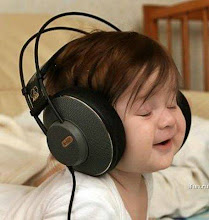So Much Depends
William Carlos Williams wrote a poem called “The Red Wheelbarrow” that simply says: “so much depends/ upon/ a red wheel / barrow/ glazed with rain/ water/ beside the white/ chickens.” You leave the poem wondering, “Well, what exactly depends upon a red wheelbarrow?” In my mind, I imagine the wheelbarrow on a farm as an implement used to support a family and to grow food for a nation, or at least a part of a nation. I like the artistic technique of making something out of (seemingly) nothing-making mountains out of molehills. And requiring your reader to do some of the work involves them in the creative act. For, what is creativity if not making something out of nothing?Also, in praise of the seemingly insignificant, I want to talk about language today. Here’s the deal, I think so much in language depends upon conceptions in our heads. I think words and speech are kind of tenuously connected to reality. Here’s the example I always think of when I consider how loosey-goosey language is. Compare the following two statements about my Grandpaw:
1) He lived a good life.
2) He lived the good life.
Obviously, there is only one word different in those two sentences. Now, in my conception, these two sentences are saying two different things. I would go so far as to say that, though they are only different by one word, they are actually saying the exact opposite of each other.
For, in the first one, we’re probably talking about ethics and how my grandpaw behaved. He had a life that was healthy and rightly related with people. That’s what I think of when I hear the words “a good life.” However, contrasted with that is the phrase “the good life,” which, to me, is the stuff of those shows on VH1-The Fabulous life of (insert name of some celebrity) where they talk about how much money famous people spend on designer underwear and Kabbalah water. And in my conception of the world, these are two opposite scenarios-my grandpaw living the years of his life in a correct manner vs. my grandpaw sitting back on the island he owns with a yacht in the background, sipping the finest wines. But did you catch the surprising part? “A good life” vs. “The good life.” “The” vs. “A.” That’s a pretty big difference riding on two insignificant little words. So much depends upon them. I mean, what does the word “a” even mean? Can you define it?
But that’s only half the story, my friends. Language has a verbal component as well. Say those two sentences aloud. “He lived a good life,” vs. “He lived the good life.” If you speak like I do, the only difference between “the” and “a” is a barely perceptible “th”-sound. I guess it would be written “thuh” or “uh.” To me, this shows that in verbal communication, meaning is derived from much more than just the words we say. Inflection is obviously very important. And this has some consequences. If there is a connection between the words we say and reality, shouldn’t it be a 1:1 correspondence? One word per object or idea? But language is not that way.
Take, for instance, the idea of contranyms-homophones whose two meaning are opposites of each other. The word “bound” can mean “moving” as in “bound for New York,” but it can also mean “prevented from moving,” as in “bound and gagged.”
The point of all this today? Eh, just to say that “so much depends” on what we make of the words we say.


0 Comments:
Post a Comment
<< Home